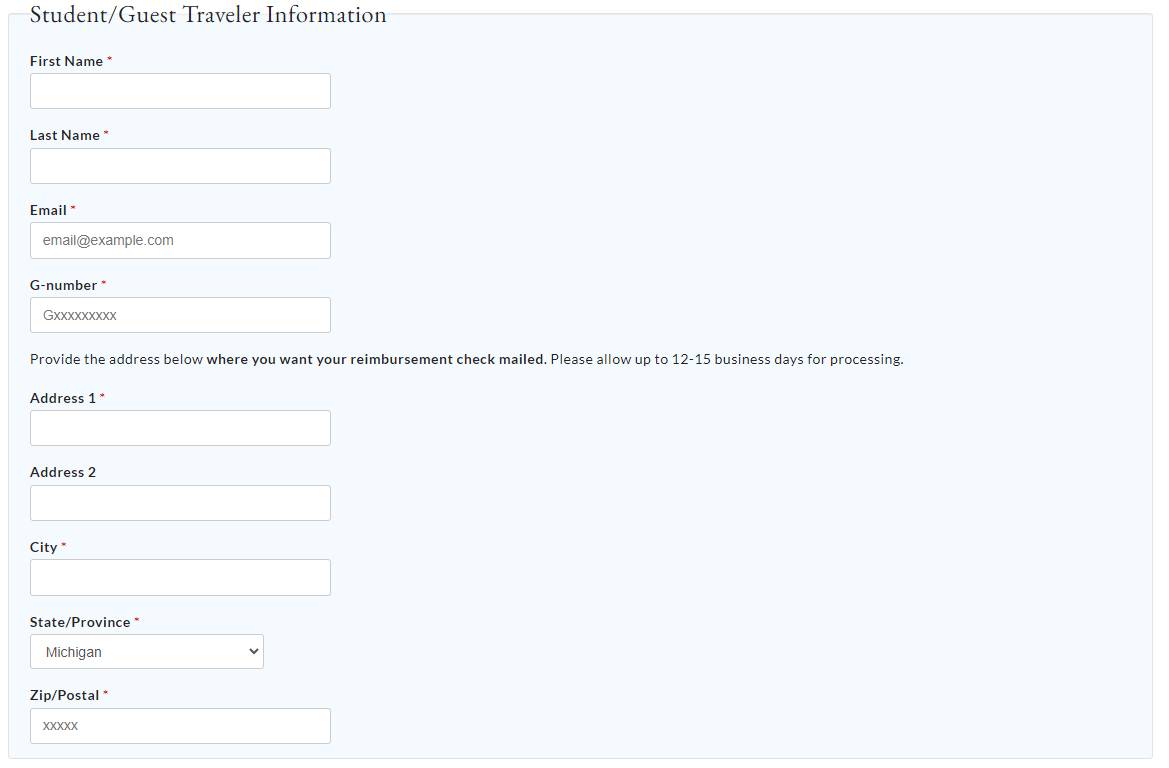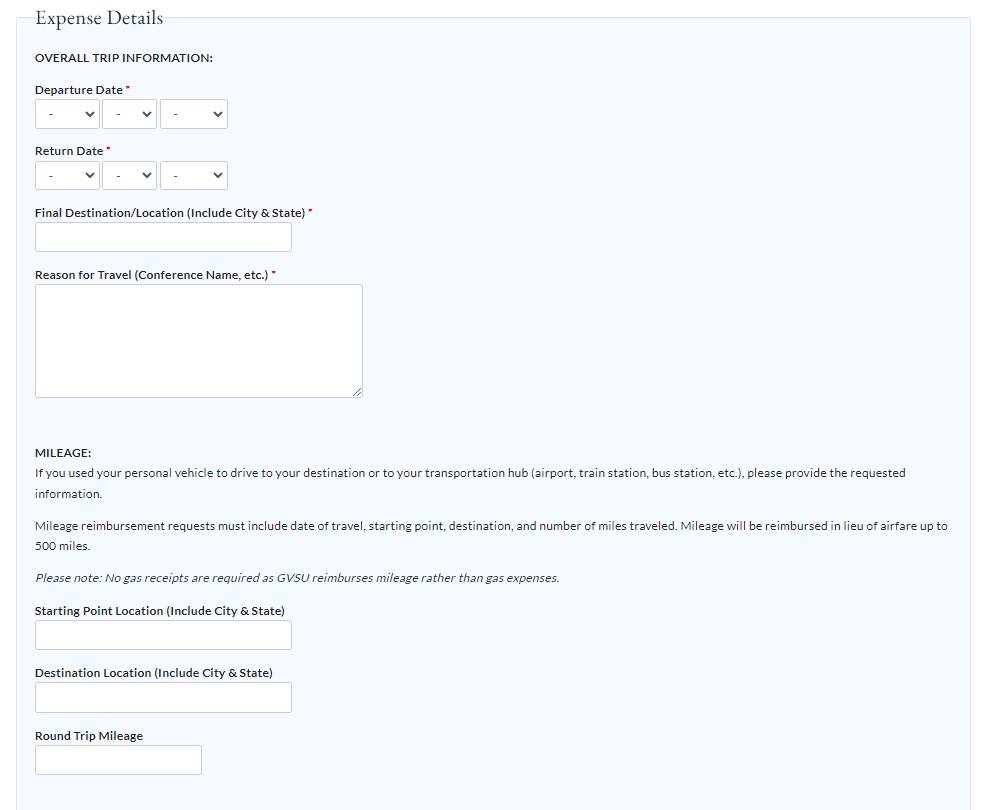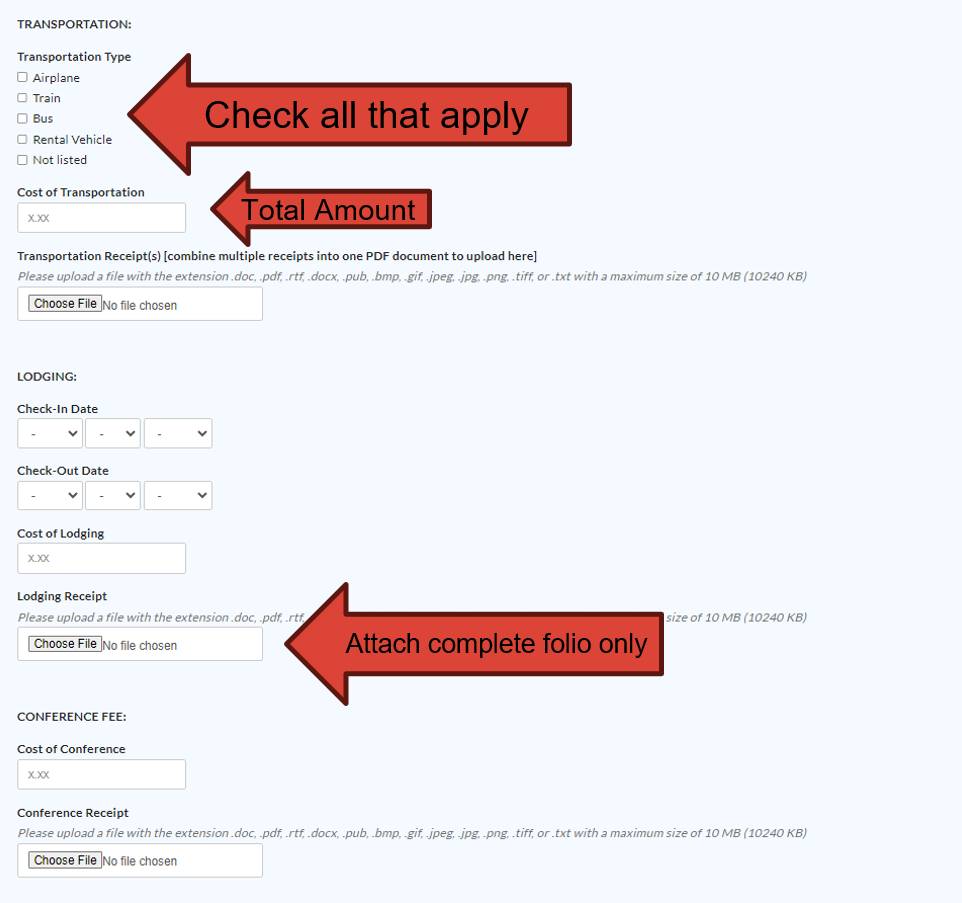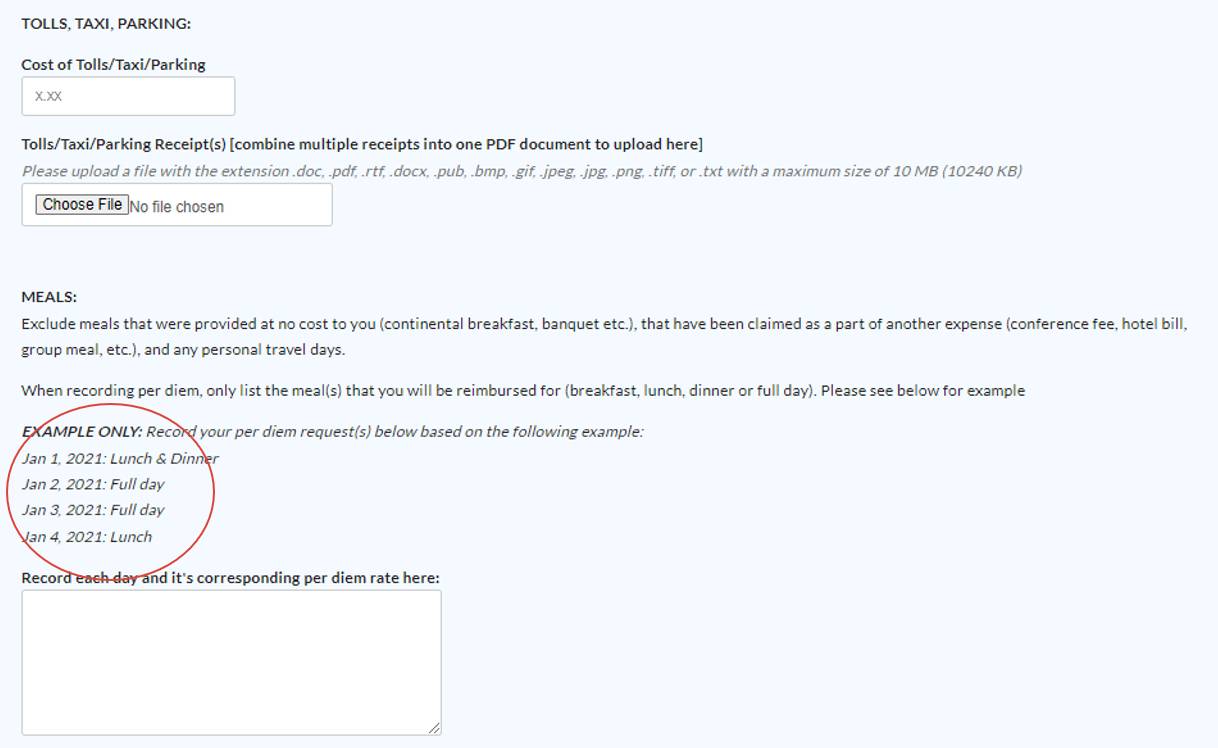Academic Conference Fund
The Student Senate, the Provost's Office, and the Center for Scholarly and Creative Excellence have established a fund to support student travel to academic conferences. The Academic Conference Fund (ACF) is available to all undergraduate students who may be looking for one time funding to present/perform at an academic conference that is related to their major, minor, and/or professional goals.
Presenting an academic project, a creative exhibit, and/or a performance at an academic conference can be a valuable experience which enriches a students understanding of a discipline and subsequent professions. ACF is intended to assist students in presenting/performing such projects.
About the Award
AWARD
The purpose of these grants is to encourage student presentations at academic conferences by offsetting the cost of attendance. Awards of up to $600.00 (up to $800.00 for international travel) will be given to those invited to present or perform at a conference/meeting.
The ACF grants are divided into 4 allotments which are distributed equally over the fiscal year (July-September, October-December, January-March, April-June). Proposals that meet established guidelines and quality will be awarded on a first-come, first-served basis each quarter until funds are exhausted for the quarter. A student may only receive one ACF grant per fiscal year. More questions? See our ACF FAQs
ELIGIBILITY
Funding eligibility is open to all students who meet the following:
- Are at least a halftime undergraduate student of Grand Valley State University at time of travel (6 credits for undergraduates)
- Have the written support from a faculty member who can attest to the quality of the student's work or the academic benefit of attending the conference/meeting
- Are in good financial and judiciary standing with the University
- Are in good academic standing with the University
- Have had their research accepted for a poster or presentation at a professional conference, or whose creative work is accepted for an exhibition or performance at a state, regional, or national competitive, juried event.
All presentations must comply with ethical standards as noted by the Office of Research Compliance and Integrity. This includes receiving the appropriate approvals from the Human Research and Review Committee (HRRC) or Institutional Animal Care and Use Committee (IACUC).
SUPPORT
It is common practice to acknowledge those who have helped you present your work. Logos for the Office of Undergraduate Research and Scholarship can be found here. OURS also offers the use of poster tubes for seven days to assist in transporting your poster. They can be checked out in 230 LIB.
Application Requirements
Submit your online ACF application. Be sure to complete the "Profile" section and the "New Request" section. The "Profile" tells us who you are, and the "New Request" is the application to your conference. Both sections must be complete for a complete application.
Funding awards are on a first-come, first-served basis per quarter for the July 1-June 30 fiscal year until funds are depleted. Applications are due to the Office of Undergraduate Research and Scholarship no later than 30 days before the intended travel within the appropriate funding quarter. We request a minimum of thirty days to process your application. For example, if your conference begins on May 1st, your application deadline would be April 1st.
The student applicant needs to complete the online application form. Be sure to go through each screen of the application process. Applications must include your profile information, conference information, resume, proof of acceptance to present at the conference, and a faculty recommendation. There will be space to upload your resume and proof of acceptance to present at the conference. The application system will also ask you to identify a faculty mentor who can provide a recommendation on your behalf. The application system will automatically email your identified faculty mentor, who will log in to provide your recommendation. Faculty will be asked to speak to the following:
- The student applicant's research and his/her ability to present, exhibit, or perform at a national convention or conference
- The potential impact of attending such a conference on the applicant's academic and professional development
- The ability of the student to appropriately represent Grand Valley State University at a local, regional, national, or international conference
- Overall recommendation
Please note: the ACF grant and the APEF grant are mutually exclusive. You may not receive both funds for the same conference.
Application Details
In addition to conference information, ACF application will ask the following:
- An explanation of what contribution to the scholarly community your research or project will make.
- A short bibliography of the literature referenced in the presentation /performance and/ or the scholarly dialogue to which you will contribute.
- A description of your learning goals, including how this presentation/ performance relates to and advances your academic plans and intellectual development.
If you are traveling as part of a group, note that each ACF applicant must submit individual responses to these prompts. Answers to questions 1 and 2 may be similar across the group, but question 3 must be specific to the student applicant.
Generative AI Use in OURS Applications and Proposals
The use of generative artificial intelligence (AI), like ChatGPT in a program proposal, research proposal, or application essay must adhere to the following to ensure academic integrity and uphold quality standards for students engaging with AI technologies in academic research, scholarship, and creative work:
- AI-Generated content includes any content produced or significantly assisted by AI-powered systems.
- AI-generated content may be used as a tool to assist in the writing process but not as a replacement for original thought, analysis, and critical thinking.
- If AI tools are used during the development of the program proposal, research proposal, or application essay, their use must be disclosed in the proposal/essay and students must clearly identify which part(s) of their work was generated or significantly influenced by AI, making sure to provide proper citation and attribution where appropriate. (See APA guidelines)
- Failure to adhere to this policy may be considered a violation of the GVSU Student Code of Conduct and GVSU research integrity policies.
How to Apply
Submit your application online. You will need:
- Your résumé or CV
- Proof that the paper or creative work has been accepted for presentation: It must come from the conference organizers and include your name, the title of your presentation, and the name of the conference
- The recommendation of a faculty member who can speak to his/her support of your request for a travel grant, and attest to the quality of the work (be sure to enter the correct GVSU faculty email or your faculty member will not be able to submit the recommendation)
Reimbursement Requirements
The student must log in to the original proposal and submit online at www.gvsu.edu/acf within two weeks from the last day of the conference the following (ALL FORMS AND REPORTS MUST BE TYPED).
- ACF Survey and Reflective Essay:
- SUBMIT THESE DOCUMENTS ONLINE - You will be asked to complete your actual budget. You will then complete the ACF Survey and then upload your Reflective Essay as a PDF document.
- ACF Survey: This is a brief survey about your experience at the academic conference, performance, exhibit, or competition.
- Reflective Essay: This is a reflection essay that addresses how preparing for and participating in the conference contributed to your skills in TWO of the areas listed below You can choose any two that seem most fitting to your experience. Be sure to submit any references used in your response. The essay should be at least 500 words.
- Leadership
- Communications
- Problem solving
- Intercultural competence
- Sustainability
- Team Building
- Team Leadership
- Teamwork
- Critical Thinking
- Decision Making
- Creativity
- SUBMIT THESE DOCUMENTS ONLINE - You will be asked to complete your actual budget. You will then complete the ACF Survey and then upload your Reflective Essay as a PDF document.
- Submit the T&E Reimbursement Form:
Reimbursement Instructions
Notes to Consider Before Starting
- All expense receipts must be in your name.
- Contact us immediately if someone else is paying any portion of your travel expenses. We cannot pay you to pay back someone else.
- Make sure to split lodging costs between roommates with the hotel/Airbnb. Each person must have their own receipt with their name on it.
- Keep all of your receipts.
- If you have multiple receipts for an expense, you will have to combine them into one file before uploading.
- You may receive mileage for travel in your personal vehicle and per diem for meals. Receipts are NOT required for mileage and per diem.
- If traveling internationally, please connect with Padnos International Center for health insurance and a pre-departure health and safety meeting.
Let's Get Started
- Click here to submit your Travel & Expense Reimbursement Form.
- A GVSU network login is required.
How to complete the reimbursement form

Student Profile
- Under the “Student/Guest Traveler Information” block complete all fields with the red asterisks.

Expense Details: Trip Information and Mileage
- In the “overall trip information” complete all fields with red asterisks.
- For mileage, provide the starting location and destination location and round-trip mileage. We do NOT reimburse for gas; you can expense mileage only if you drove your personal car.

Expense Details: Transportation, Lodging, Conference Fee
- For transportation, select the transportation type(s) and then enter the total cost of transportation. Receipt must be attached.
- For lodging, complete the check-in date and check-out date and enter the cost of lodging. A full lodging folio is required. A receipt or screenshot of receipt is NOT sufficient.
- For conference fee, enter the cost of conference and attach a conference receipt. A receipt is required for reimbursement.

Expense Details: Tolls, Taxi, Parking and Meals
- Provide the total cost of tolls/taxi/parking. Receipt is required for reimbursement.
- Per diem does NOT require receipts. Please follow the format from the example. For each day, list the meal(s) you want to be reimbursed for.

Certify, Verify and Submit
- Click on the box in the Certification Statement to agree to the statement.
- Verify that you are not a robot.
- Click submit.
ACF FAQs-Eligibility/Application
Funding awards are on a first-come, first-served basis per quarter for the July 1-June 30 fiscal year until funds are depleted. Applications are due to the Office of Undergraduate Research and Scholarship no later than 30 days before the intended travel within the appropriate funding quarter. We request a minimum of thirty days to process your application. For example, if your conference begins on May 1st, your deadline to apply would be April 1st.
Application forms must be accompanied by:
- Your résumé
- Proof that the paper or creative work has been accepted for
presentation
- It must come from the conference organizers and include your name, the title of your presentation, and the name of the conference
- The recommendation of a faculty member who can speak to his/her support of your request for a travel grant, and attest to the quality of the work (be sure to enter the correct GVSU faculty email or your faculty member will not be able to submit the recommendation)
*Your application will not be reviewed until we receive all of the necessary components.
We need to make sure you are being credited for your work. We can also accept something from the conference organizers that shows your name as a presenter, i.e. in the program, on the conference website, etc. Let us know if you have any questions about this.
Please allow 10 business days to review applications. You will be notified via email once the review is complete.
ACF applications need to be submitted, at a minimum, 30 days before the conference. We do allow students to submit a waiver of this rule via email (ours@gvsu.edu) if circumstances prevented them from applying in time. The email should include justification for the waiver in the request, i.e., an explanation as to why the application would be submitted late.
If the ACF application system is not accepting your conference dates, it is likely because you are within 30 days of the first day of the conference. DO NOT fudge the dates to make it work. We do allow students to submit a waiver of the 30 Day rule via email (ours@gvsu.edu) if circumstances prevented them from applying in time. The email should include justification for the waiver in the request, i.e., an explanation as to why the application would be submitted late. If your waiver request is approved, you will receive instructions on how to make your conference dates work in the system.
No; individuals receiving funds from the Academic Conference Fund may not also directly benefit from organization funding for the same trip provided to Registered Student Organizations through the Student Life Fund. Student Organizations have funding available through the Council and Funding Boards. Details can be found here: https://www.gvsu.edu/lakerlink/
No; if the student presenting at the conference is doing so as a class requirement, they are not eligible to receive funds.
Each student must have a cumulative grade point average (GPA) of a 2.000 or higher to be in good standing
No; participants are not eligible. Presenters who have proof of acceptance or an invitation to present at an academic conference or meeting are eligible to apply for ACF. Participants can receive funds through faculty-led APEF.
Yes; however, students can only receive one of each grant per fiscal year.
The application asks you to:
- Please describe:
-the conference you will be attending (what organization is holding the conference, whether or not is it a scholarly venue, etc.)
-the particular section or panel in which your presentation has been accepted - Please explain what contribution to the scholarly community your research or project will make (500 word minimum):
- Please give a short bibliography of the literature referenced in the presentation. Also, please describe scholarly dialogue to which you will contribute:
- Please clearly describe and discuss your learning goals, including how this presentation relates to and advances your academic plans and intellectual development:
The application asks faculty to write about:
- The student applicant's research and his/her ability to present, exhibit, or perform at a national convention or conference.
- The potential impact of attending such a conference on the applicant's academic and professional development.
- The ability of the student to appropriately represent Grand Valley State University at a local, region, nation, or international conference.
ACF FAQs-Travel
Please allow 12-15 business days to process reimbursements. This allows for review and approval of your report and reflection, for us to submit a request to the accounting department, and for the accounting department's 7-10 business day processing time.
Yes, BUT - only the person who purchased the ticket can be reimbursed the ticket. It is preferred that you make all purchases yourself for one complete reimbursement.
If you are sharing a hotel room, then ask the desk clerk to split the bill at check-out. Many hotels are used to doing this. Be insistent if you must.
Contact us at ours@gvsu.edu with an explanation of your circumstances. We cannot give travel advances through our office, but we will see what we can do on a case-by-case circumstance.
Fine Print
To ensure each grant follows the purpose stated in this proposal, funded students will be required to submit online an actual budget summary (form provided online), complete the ACF Survey, and submit a Reflective Essay (upload your pdf) within two weeks from the last day of the conference, in addition to reconciling the monies from the grant. There will be no reimbursement to the student until their submitted ACF Reflective Essay has been approved as meeting the requirements. ALL FORMS MUST BE TYPED.
*Students are expected to adhere to GVSU's Student Code and OURS Generative AI Policy. Failure to meet these requirements may result in loss of funding by ACF.
*Grand Valley State University complies with the IRS regulations on reimbursements. Please be sure to review the GVSU Travel Policy and Procedures.
*Students who may have a hardship in waiting for reimbursement may contact us at ours@gvsu.edu with an explanation of your circumstances.

